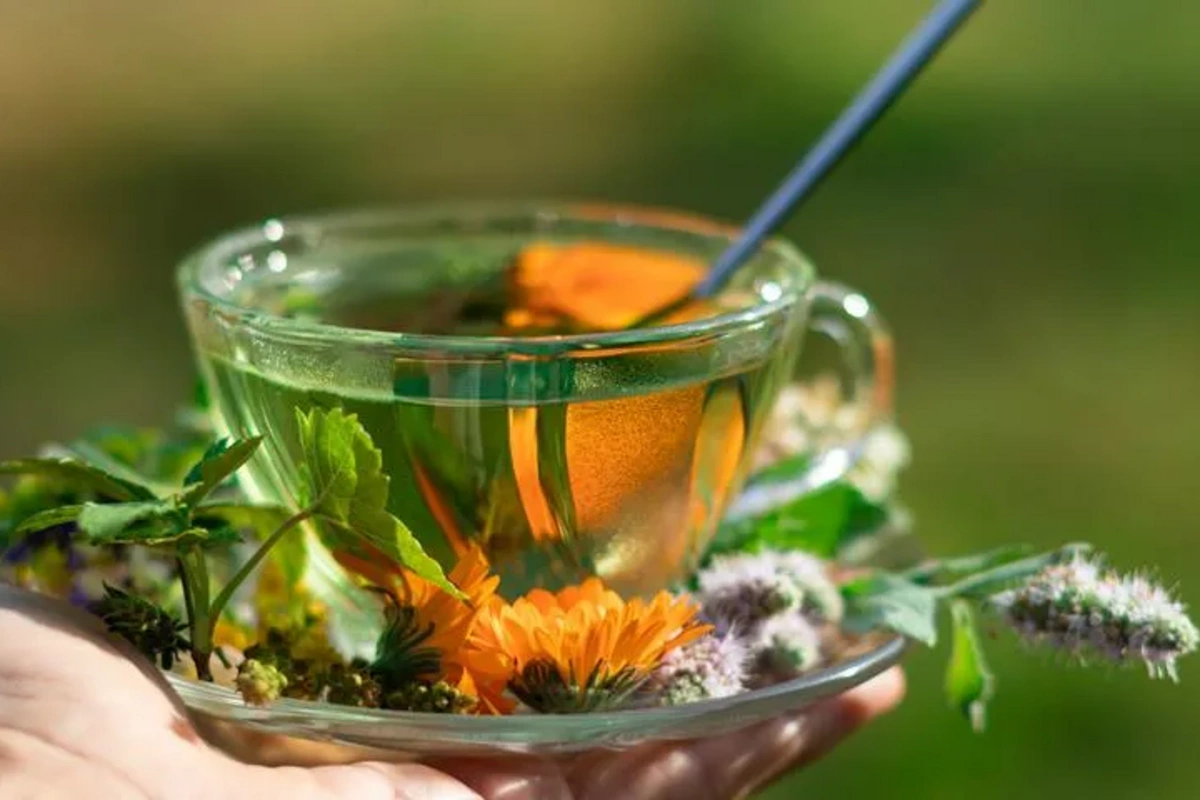Can you drink herbal tea daily: what unexpected changes will happen to your body

Many perceive herbal tea as a harmless drink that can only calm or warm you.
However, its regular consumption can cause much deeper changes in the body - both positive and unexpected. Everything depends on the composition, dosage, and the person's health condition.
Immunity strengthens and resistance to infections increases
Herbal teas are rich in natural antioxidants, vitamins, and phytoncides. Drinks based on chamomile, thyme, ginger, or rose hips help the body fight viruses and bacteria more actively. The immune system gradually strengthens, and a person starts to get colds or flu less frequently.
Digestion and metabolism normalize
Some plants - such as mint, fennel, St. John's wort, calendula - gently stimulate the function of the stomach and intestines. They relieve bloating, heaviness after eating, and accelerate the elimination of toxins. Digestion gradually improves, and problems with gas and spasms disappear.
Sleep quality improves and stress levels decrease
Herbs containing essential oils and natural sedative substances help the nervous system recover. Melissa, lavender, valerian, and chamomile promote serotonin production and reduce levels of cortisol - the stress hormone. With regular consumption, a person becomes calmer, and sleep becomes deeper and more sound.
The condition of skin and hair changes
Herbal teas with nettle, burdock, or mint cleanse the body from within, remove excess fluid, and reduce inflammation. This is reflected in appearance: skin becomes clearer, hair stronger, and nails less brittle. The effect is especially noticeable in those who suffer from oily skin or acne.
Cravings for caffeine and sweets decrease
When a person regularly drinks herbal tea, the body needs less caffeine. Many herbs have a mild tonic effect but are not addictive. Over time, the need for strong coffee or sweet carbonated drinks diminishes.
However, there is also a downside
Even natural herbs can be harmful if consumed excessively. Some plants affect blood pressure, blood clotting, and hormonal balance. For example, St. John's wort reduces the effectiveness of certain medications, while licorice can increase blood pressure. During pregnancy, chronic diseases, or when taking medications, herbs should be selected especially carefully.
How to drink properly
It's better to alternate blends and not drink the same tea for months. The optimal approach is courses of two to three weeks with breaks. The beverage should be brewed not too strong, without sugar. It's most beneficial to drink it in the morning or evening when the body is particularly receptive to plant substances.
If approached sensibly, daily consumption of herbal tea can bring noticeable improvements - from sound sleep to healthy skin. The main thing is to remember that herbs are not harmless, which means they should be treated with the same respect as any medication.
Similar News
Everyone talks about psychology: why wasn't it like this before?
In recent years, interest in psychology and psychological practices has grown worldwide. If previously psychological knowledge and counseling were perceived as...




 Azərbaycanca
Azərbaycanca  По-русски
По-русски  English
English 





